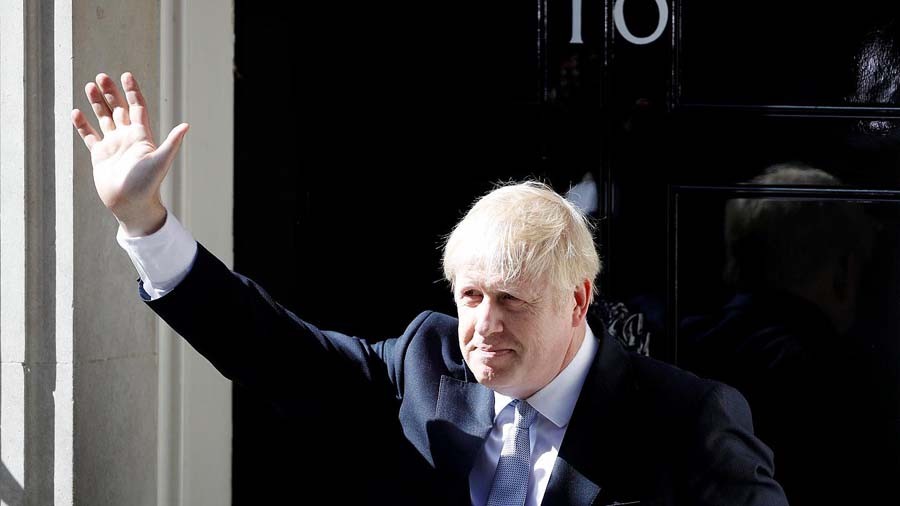

Dear All,
Britain’s new Prime Minister Boris Johnson is a perfect illustration of the 20th century maxim "no publicity is bad publicity". Despite the various scandals he has been embroiled in and any reputational damage these may have caused, he has thrived on the publicity he has received -- even if this has been essentially negative.
You may recall that Johnson, who started his career as a trainee journalist, was fired by The Times (in 1998) for fabricating a quote. He was then sacked by the Conservative party leader, Michael Howard, for not telling the truth (in 2004). He has, at various times, been accused by those who’ve worked with him of being narcissistic, untruthful and lazy as well as undiplomatic and offensive. Recently, he was even involved in an incident where police were called to the home of his girlfriend after a noisy altercation between the couple.
Yet the entertainment he has provided to the world over the years has somehow outweighed any of this negative publicity. For the general public, he remains an instantly recognisable personality, a sort of cartoonish figure: the man with the tousled mop of badly cut blond hair who wears clothes which always look as if he’s slightly outgrown them. He has, over the years, provided us with memorable, amusing and endearing images of himself - bicycling around London, dangling in the air after getting stuck on a zip wire in Victoria Park, and generally slouching around in the manner of a naughty child or a storybook bear. His foot-in-mouth syndrome -- making undiplomatic, offensive and racist remarks -- has been called out and criticized. But this doesn’t seem to have harmed his ratings - Boris Johnson is now the prime minister of Britain.
There was somehow a sense of inevitability about Boris Johnson’s rise to the top. The stories about his ambition and determination to get to 10 Downing Street have become folklore over the years -- how, as a child, he reportedly expressed his desire to be the king of the world, his rivalry with a predecessor David Cameron, his junior at Eton and Oxford, and his tendency to choose sides according to opportunistic self-interest. It seems almost like a chronicle of an ascent foretold: the destiny of Boris.
The man, who the world knows (almost affectionately) by his first name, is known in his family as Al. This is because Alexander Boris de Pfeffel Johnson reinvented himself as ‘Boris’, an eccentric in the sort of English Wodehousian tradition, while he was at secondary school. He has, to some extent, carried on with the reinvention ever since. The very first speech he gave after becoming the prime minister signalled his new persona was now that of a responsible, committed national leader, pledging to deliver better health, education and social care to the people of the United Kingdom. Many observers see his cabinet choices and new appointments as reflecting an almost Churchillian determination to win the conflict the nation is faced by. Analysts describe his cabinet as being akin to a ‘wartime cabinet’.
To many here in the UK, this clarity of purpose is welcome. The referendum on leaving the UK was held in 2016 but three years later Britain remains in a sort of limbo: neither has the Brexit been delivered nor has it been reversed; instead, the process of negotiation, and inconclusive parliamentary debate has dragged the uncertainty out in an agonising fashion. So, now, it may seem almost a relief to us here to get things decided and finalised, even though it remains unclear whether Johnson will achieve this by holding an election and trying to get a parliamentary majority or by proroguing parliament in order to avoid the inconvenience of not being able to win parliamentary approval for his Brexit package.
In the case of a general election, his fame (or infamy) may give him an advantage. He is a charming and entertaining campaigner and people -- and the media -- find his performances oddly compelling -- because you never quite know what he is going to say or do. His becoming a Tory leader may, however, strike a harsh blow to the electoral hopes of the Labour party led by Jeremy Corbyn. The robotic and rather uncharismatic Theresa May might have been a much easier rival to defeat.
So now Britain too has brash leader with a history of womanising and telling untruths who relishes in being politically incorrect and provocative. Donald Trump, Narendra Modi, Imran Khan etc… and now Johnson is one of their number, only probably much more entertaining than any of them.
The age of Boris promises to be full of drama and action. It will definitely be interesting to see how the new resident of number 10 continues to reinvent and position himself.
Truly we live in ‘interesting times’.